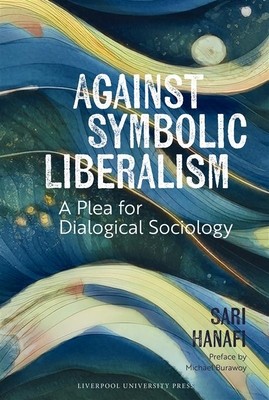
- We will send in 10–14 business days.
- Author: Sari Hanafi
- Publisher: Liverpool University Press
- ISBN-10: 1836244665
- ISBN-13: 9781836244660
- Format: 15.6 x 23.4 x 1.6 cm, kieti viršeliai
- Language: English
- SAVE -10% with code: EXTRA
Reviews
Description
In an era of deepening polarization, Sari Hanafi examines how social scientists often reproduce the very injustices they seek to challenge, taking entrenched positions while dismissing alternative perspectives.
He introduces the concept of symbolic liberalism - a contradiction in which individuals espouse classical liberal principles, yet act in politically illiberal ways. This, he argues, has exacerbated the pathologies of late modernity: authoritarianism, economic precarity, and environmental destruction, now all unfolding in a climate where reasonable debate seems increasingly impossible.
Examining key flashpoints of contemporary polarization, Hanafi critiques how symbolic liberalism inflates the universality of rights while simultaneously narrowing the space for dialogue. Rather than this rigid ideological stance, he calls for a dialogical turn, a renewed public sphere where diverse conceptions of the 'common good' engage in genuine conversation.
Blending political and moral philosophy with sociological critique, Hanafi offers a path forward in an age when intellectual exchange is more necessary, yet also more imperilled, than ever. Against Symbolic Liberalism is not just a critique of polarization but a critical and impassioned call to reclaim meaningful intellectual discourse.
EXTRA 10 % discount with code: EXTRA
The promotion ends in 23d.16:56:53
The discount code is valid when purchasing from 10 €. Discounts do not stack.
- Author: Sari Hanafi
- Publisher: Liverpool University Press
- ISBN-10: 1836244665
- ISBN-13: 9781836244660
- Format: 15.6 x 23.4 x 1.6 cm, kieti viršeliai
- Language: English English
In an era of deepening polarization, Sari Hanafi examines how social scientists often reproduce the very injustices they seek to challenge, taking entrenched positions while dismissing alternative perspectives.
He introduces the concept of symbolic liberalism - a contradiction in which individuals espouse classical liberal principles, yet act in politically illiberal ways. This, he argues, has exacerbated the pathologies of late modernity: authoritarianism, economic precarity, and environmental destruction, now all unfolding in a climate where reasonable debate seems increasingly impossible.
Examining key flashpoints of contemporary polarization, Hanafi critiques how symbolic liberalism inflates the universality of rights while simultaneously narrowing the space for dialogue. Rather than this rigid ideological stance, he calls for a dialogical turn, a renewed public sphere where diverse conceptions of the 'common good' engage in genuine conversation.
Blending political and moral philosophy with sociological critique, Hanafi offers a path forward in an age when intellectual exchange is more necessary, yet also more imperilled, than ever. Against Symbolic Liberalism is not just a critique of polarization but a critical and impassioned call to reclaim meaningful intellectual discourse.


Reviews